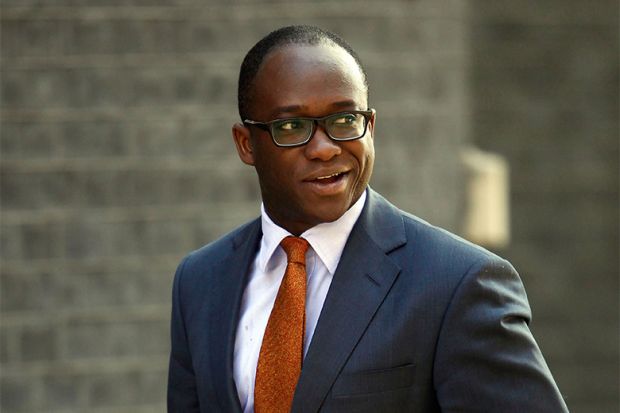The subject-level version of the UK’s teaching excellence framework will expose degrees with standards that are “lagging behind” the rest of the sector, the universities minister has said.
Launching a consultation on the methodology of the discipline-level exercise on 12 March, Sam Gyimah said that higher education institutions “will no longer be able to hide if their teaching quality is not up to the world-class standard that we expect”.
The 10-week consultation will run alongside a pilot of the scheme involving 50 universities and colleges, the results of which will not be published.
Alongside the metrics used in last year’s institution-level TEF – retention, student satisfaction and graduate employment – measures that the government has previously said will be piloted in the subject-level TEF include graduate earnings and teaching intensity, based on class sizes and contact hours. Universities will be penalised if they are found to be guilty of grade inflation in their degree scores.
The two-year pilot will test two models of the subject-level TEF: one in which a university will be rated “gold”, “silver” or “bronze” overall, with the subject-level score differing only where metrics are significantly different, and another in which individual subject-level ratings feed into the provider-level assessment.
The Department for Education said that the subject-level TEF would “shine a light on course quality, revealing which universities are providing excellent teaching, and which are coasting or relying on their research reputation”.
“Prospective students deserve to know which courses deliver great teaching and great outcomes – and which ones are lagging behind,” Mr Gyimah said. “In the age of the student, universities will no longer be able to hide if their teaching quality is not up to the world-class standard that we expect.
“The new subject-level TEF will give students more information than ever before, allowing them to drill down and compare universities by subject. This will level the international playing field to help applicants make better choices, and ensure that more students get the value for money they deserve from higher education.”
The subject-level TEF pilot will take place this year and next, with the expectation that all higher education providers will participate in 2019-20.
The second round of institution-level TEF assessments are currently under way, with the results expected to be published this summer.
Also on 12 March, Mr Gyimah announced an open data competition, encouraging technology companies to create apps to help prospective students decide where to apply, based on graduate employment and salary data.
Register to continue
Why register?
- Registration is free and only takes a moment
- Once registered, you can read 3 articles a month
- Sign up for our newsletter
Subscribe
Or subscribe for unlimited access to:
- Unlimited access to news, views, insights & reviews
- Digital editions
- Digital access to THE’s university and college rankings analysis
Already registered or a current subscriber? Login








